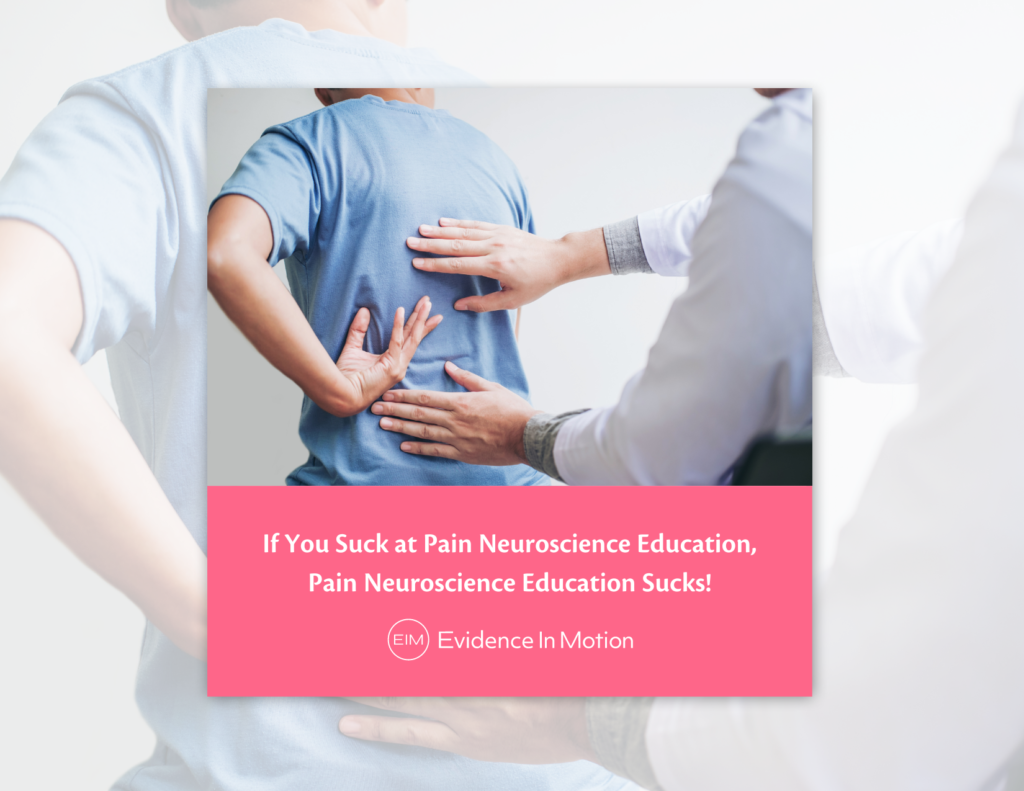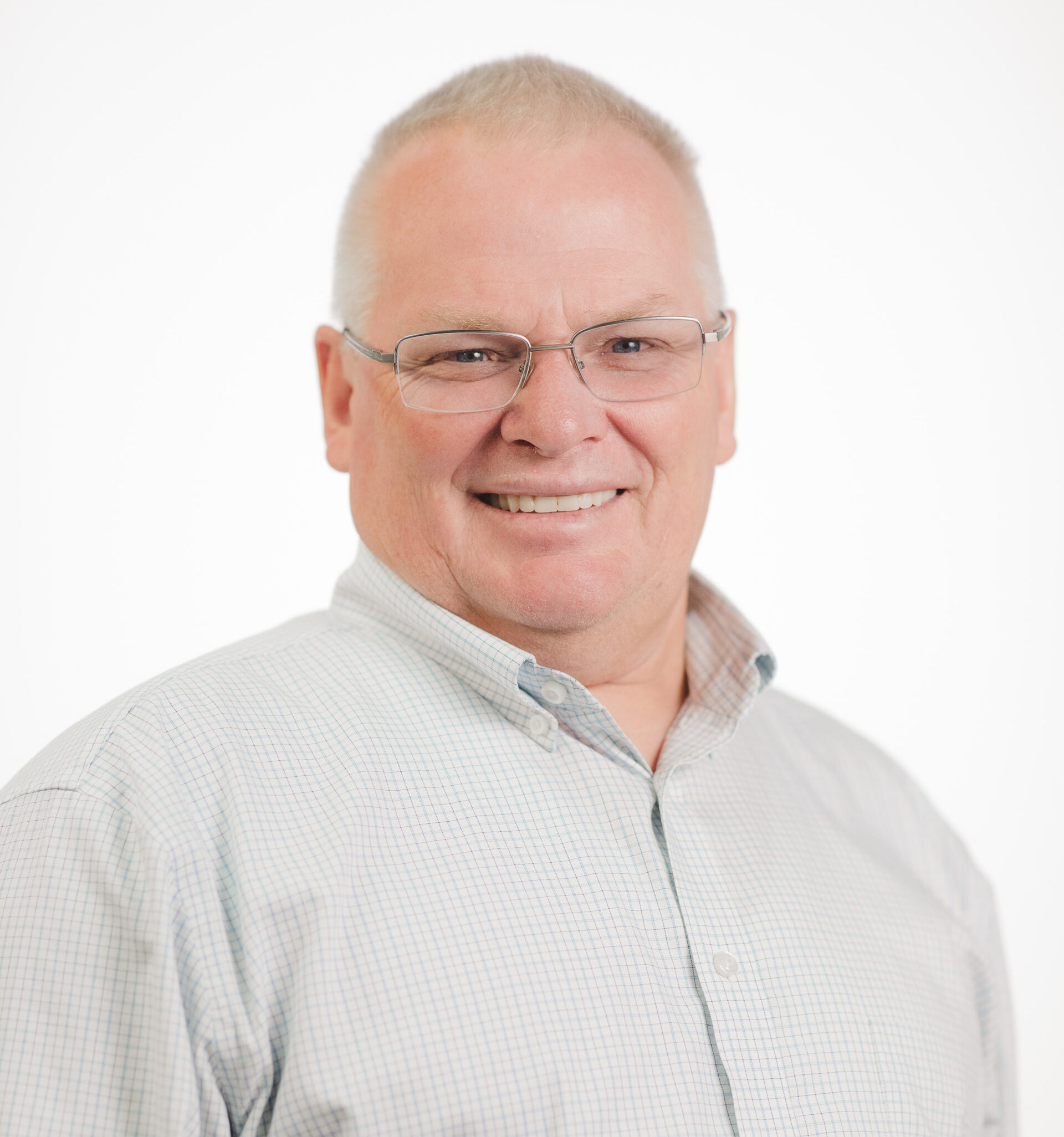
Every year in the United States, approximately 800,000 discectomies are performed, with an 80% success rate. Twenty percent of patients, or one in five, are left with ongoing pain and disability. This often leaves these patients disillusioned, frustrated and unhappy – some to the point of anger and resentment, which leads complaints to (and against) surgeons, management, hospitals, state boards, and the healthcare system. This is especially true when the surgeon’s bedside manner (therapeutic alliance) is inadequate. In this case the anger and resentment are geared towards the surgeon, not the technique (discectomy) and the surgeon must do better. This often includes more training, working on their skills, improving bedside manners, etc.
In rehabilitation, we often do the opposite and are seemingly okay with it. Every year I hear about 2 to 3 cases where a therapist delivered pain neuroscience education (PNE) to a patient and it “blew up.” The patient was offended, angry and often felt like the therapist minimized their pain experience, i.e., “you think it’s in my head,” which implies (thanks Rene Descartes) it’s not real. In these scenarios, patients also complain to directors, managers, owners, hospitals, and healthcare systems, but…PNE is to blame. “It’s a bad thing to do. Stop doing it.” See the difference? Now the technique (PNE) is to blame, versus carefully analyzing if the clinician was optimally trained. Was PNE delivered to an appropriate patient? Was the education carefully paced? Did the clinician establish therapeutic alliance and create trust? No – PNE sucks, and we should stop using it immediately, right?
PNE as we currently understand it has been around for approximately 25 years, and as we embark on 2023, it has more than a dozen systematic reviews and meta-analyses showing its clinical efficacy. The numbers needed to treat with PNE show it to be twice as effective as Gabapentin™ and selective-serotonin-reuptake inhibitors (SSRIs) for altering pain in someone experiencing pain. PNE yields little to no side effects (harm), can be performed by all healthcare providers and is very cost-effective. Furthermore, updated PNE research shows that when PNE is combined with movement-based therapy such as exercise (PNE+) its efficacy increases even more. PNE does not suck!
Now, what about the clinician? How much training have they had? Did they practice and refine their skills? Is a simple online course enough? Did they establish a therapeutic alliance? Did they use sound clinical reasoning? The evidence clearly shows that PNE is well suited for:
- Patients presenting with a clinical cluster suggesting central sensitization (nociplastic pain)
- Chronic, long-lasting pain
- Patients displaying high levels of fear-avoidance and/or pain catastrophizing
- Patients ready to change – i.e., contemplation, preparation, and action phases of recovery
On the flipside, who does NOT need PNE?
- Nociceptive dominant pain with low fear/catastrophizing
- Patients in the pre-contemplation phase
Before we jump to the conclusion that any treatment (in this case PNE) sucks, we must (i) review the current evidence (our North Star) and (ii) analyze to what extent the provider and the delivery was up to par. Directors, owners and managers must stop blaming the techniques, and rather, ask if their staff has had optimal training in a technique that is showing so much promise to help with pain and disability in some of the most afflicted people we see – those with persistent pain. What’s the alternative? More surgery? More drugs? More injections? More imaging? Stop blaming the tool when the root cause may well be that the craftsman/woman is not also working on their skill to improve, or the healthcare system/hospital/clinic is too cheap to invest in adequate training!
